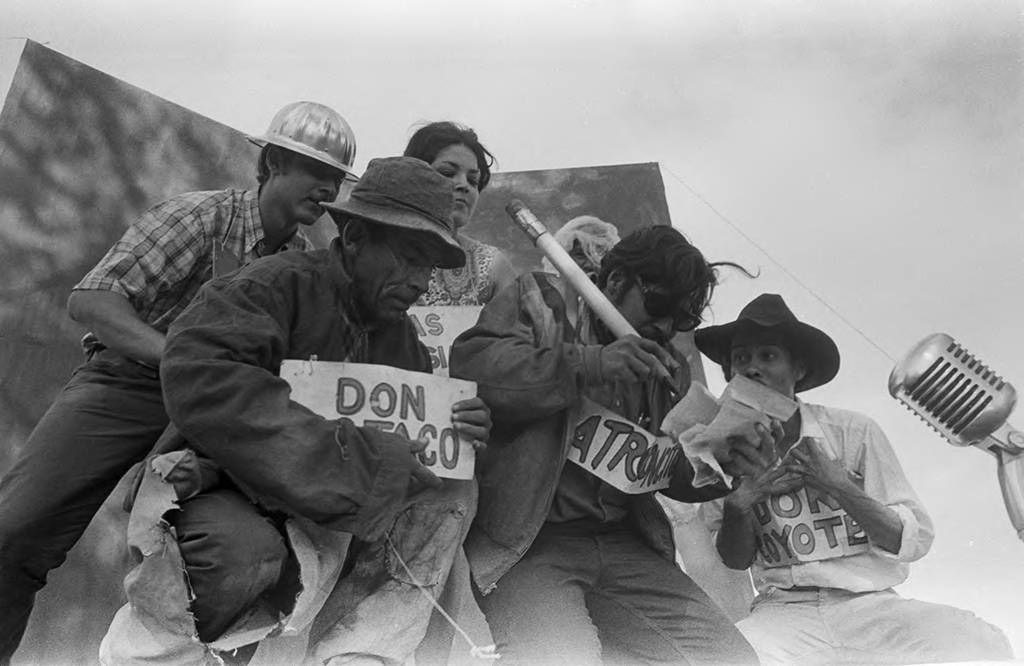El Teatro Campesino
El Teatro Campesino
El Teatro Campesino members Joe Otero, Luis Valdez, Daniel Valdez, and Roy Valdez performing. Berkeley, 1967. Photo by Emmon Clarke.
El Teatro Campesino featured satirical portraits of the farmworkers’ enemies, from the growers to the strikebreakers. It was founded by Luis Valdez in the fall of 1965 when the actor left the San Francisco Mime Troupe to do theatre to work with farmworkers in Delano.
El Teatro Campesino standing in front of the Azteca Tortilleria. Delano, ca. 1966. Photo by Emmon Clarke.
He was initially assigned to picket duty, where he started the Teatro Campesino together with Agustín Lira (known as Augie) doing some skits on the picket lines on top of trucks and distributing leaflets to farmworkers inviting them to show up for rehearsal. This is how Valdez and Augie met the farmworker/actor Felipe Cantú. Later Valdez, Lira, and Cantú started performing at regular Friday night meetings at Filipino Hall.
El Teatro Campesino performing on a flatbed truck, Salinas, ca. 1966
Felipe Cantú, Luis Valdez, Agustín Lira, Doug Rippey, Clarisse Luna, and Daniel Valdez perform with Teatro Campesino on the flatbed of a truck. This act, called The Fifth Season, was first created in 1966 and represented how farmworkers could win the strike by taking away the employer’s earnings during the winter season. At the end of the act, after the grower signed the contract, the character of Winter removes his sign and declares to be the fifth season, the season of Social Justice and pushes Don Coyote off the stage.
The Teatro Campesino mixed the Mexican carpa tradition and the Italian commedia dell’arte, using masks, Mexican Indigenous themes, and Mexican popular comedy. The main characters of the “actos” or skits were: Patroncito (the Little Boss), Huelguista (the Striker), Coyote (the labor contractor), Esquirol (the strikebreaker), and Don Sotaco (the helpless worker that originally came out Andrew Zermeño’s drawings for El Malcriado and that Cantú transformed into a sharper character). A sign hanging from the actor’s neck easily identified the roles they portrayed for the audience. According to Valdez, the “actos argumentales” or argumentative skits should “1) Illuminate specific points about social problems; 2) Express what people are feeling; 3) Satirize the opposition; 4) Show or hint a solution; 5) Inspire the audience to social action.”
Teatro Campesino Videos (Playlist)
Tom & Ethel Bradley Center
California State University, Northridge
18111 Nordhoff Street, Northridge, CA 91330
Phone: (818) 677-1200 / Contact Us


